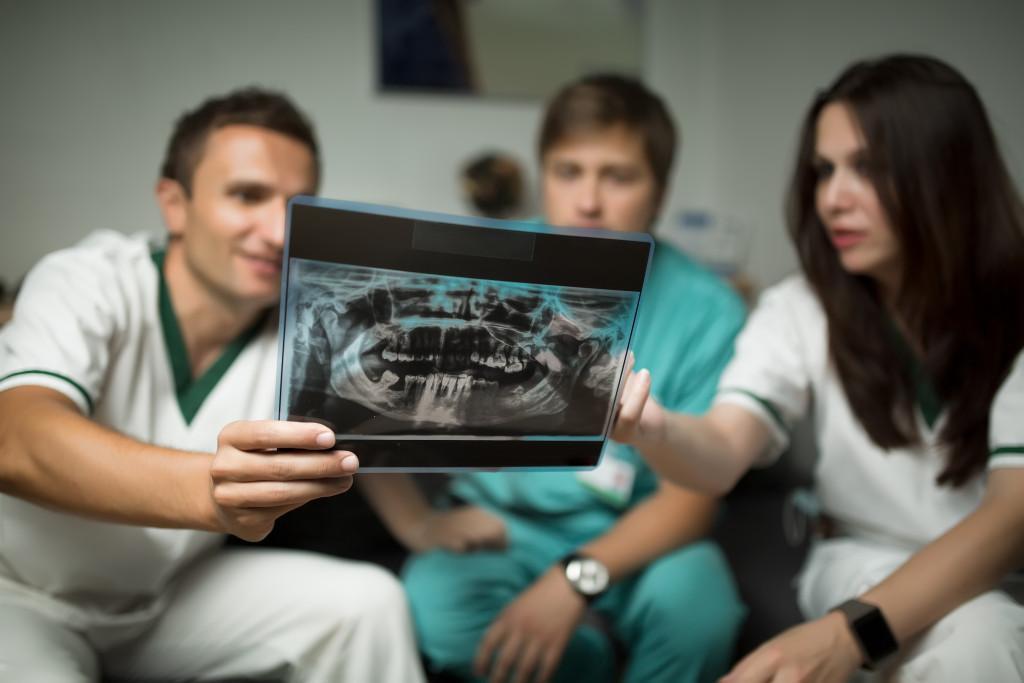Technology has come a long way in the past few years, and it has had an enormous impact on the healthcare industry. There are now many innovative technologies that are helping to improve healthcare businesses. As a result, patients receive better care, and healthcare companies become more efficient.
For instance, technology has helped glaucoma treatment surgery and other related surgeries to become more accurate. Surgeons can now use lasers that are less damaging to the eye, and patients experience a quicker recovery time.
In addition, technology is being used to help manage chronic diseases like diabetes. There are now mobile apps that allow people with diabetes to track their blood sugar levels and diet. This helps them stay on top of their health and prevents serious health complications.
Therefore, it cannot be denied that technology has played a significant role in enhancing healthcare businesses. This has helped more people achieve better health outcomes over time.
Technology in Healthcare
Today, healthcare is a booming industry in the United States and worldwide. However, it can be challenging for people to keep up with all of the latest developments within this industry.
There are plenty of new technologies that have been introduced into this field over the past few years. To stay on top of your game and continue growing as a business owner, you need to make sure that you’re spending time learning about these new developments. That way, you can take advantage of them as they become available to your company or organization.
Below are six ways technology has benefited the healthcare industry:

1. Enhanced Communication
Communication is essential in the healthcare industry. Communication allows for sharing important information between patients, doctors, and other healthcare professionals. In the past, this communication was often done through handwritten notes or over the phone. However, thanks to new technologies like email and text messaging, communication has become much more efficient. This is especially beneficial in emergencies when time is of the essence.
2. Improved Processes
These days, technology has helped improve several processes in the healthcare industry. For example, many hospitals are now using electronic health records (EHRs) to store patients’ medical information. This not only makes it easier for doctors to access this information, but it also helps reduce the risk of errors.
3. Greater Accuracy
Thanks to technology, healthcare businesses can now achieve greater accuracy. For example, doctors can now get a more accurate diagnosis than ever before by using scanning and imaging technologies.
As a result, patients can receive the appropriate treatment sooner, leading to better outcomes. This also means that patients can spend less time in the hospital, which can help reduce healthcare costs.
4. Greater Efficiency
Technology has also helped to make healthcare businesses more efficient. For example, hospitals can now process payments much faster than before by using automated billing systems. This saves the hospital time and money and makes it easier for patients to pay their bills.
In addition, by using electronic health records (EHRs), doctors can now quickly and easily access a patient’s medical history. This saves the doctor time and ensures that the doctor has all of the information they need to provide quality care.
5. Fewer Errors
Technology has also helped to reduce the number of medical errors. For example, by using barcode scanners to track medication, hospitals can help ensure that patients receive the correct medication dosage. This not only helps to prevent mistakes but also helps to improve patient safety.
In the past, medication errors were a leading cause of death in the United States. However, by using technology to help improve the accuracy of medication dosages, hospitals have reduced the number of medication errors and saved lives.
6. More Competent Staff

Technology has also helped to improve the competency of hospital staff. For example, many hospitals now use simulation technology to help train nurses and other healthcare professionals. This technology allows nurses and other healthcare professionals to practice their skills safely and physically.
This training can be extremely beneficial, as it helps nurses and other healthcare professionals feel more comfortable working with patients. In addition, it can also help to reduce the number of medical errors that occur in hospitals.
These days, healthcare businesses cannot survive without technology. Technology has become an essential part of healthcare businesses and continues to innovate to save more lives. After all, technology can help companies to become more efficient and effective. Therefore, healthcare businesses these days need to invest in technology to remain competitive in the market.

